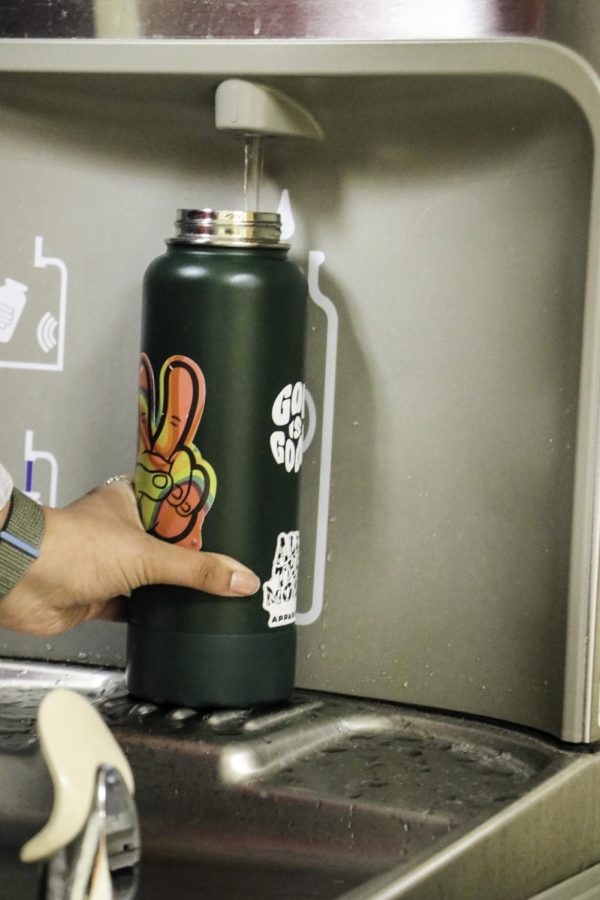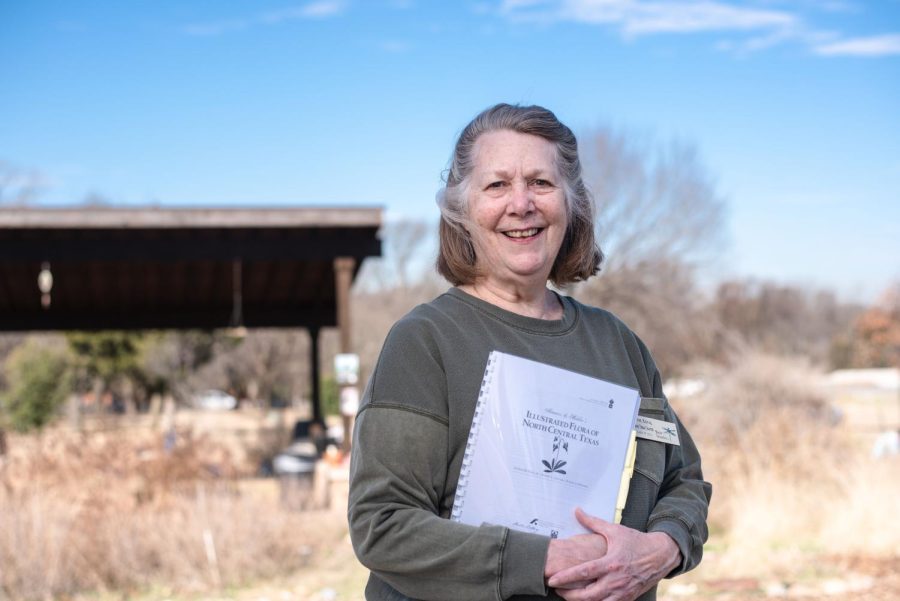PART TWO OF A THREE-PART SERIES ON DACA REPEAL
Artist reflects on American upbringing and shares advice for DACA recipients.
By Stephanie Salas-Vega
Managing Editor
[email protected]
Four large, armed men dressed in black violently pounded on the front door of Javier Valadez’s home. It was dark and the neighbors were still asleep. Valadez, a former Brookhaven College student, woke to the sounds of their knocks and his dogs barking.
“I was ass-naked when I answered the door,” Valadez later wrote in an article for Playboy.
Confused, the 26-year-old cracked open his door and came face-to-face with U.S. Immigration and Customs Enforcement officers. “We’re federal immigration agents,” one of them said. “We’re arresting you for being in the country illegally.”
He was detained at Johnson County Detention Center in Cleburne, Texas, for 26 days and deported to Mexico May 3, 2015.
“I had one month left to finish my probation,” Valadez, who now lives in Saltillo, Mexico, said.
In 2012, Valadez was convicted of a DWI and two misdemeanor drug possessions, and given two years of probation. “You may have paid for your crimes to the state of Texas,” one officer said. “But you still have to pay for your federal crimes to the U.S.”
Earlier that year, President Barack Obama prioritized the deportation of undocumented immigrants convicted of a felony or multiple misdemeanors. Valadez had three arrests and was still paying his debts, but law enforcement did not think that was enough. Due to his convictions, he did not qualify for DACA.
“I had people praise me for the work that I’ve done for the community of Dallas, but really none of that mattered,” Valadez said. “It just comes down to who you are on paper.”
AN AMERICAN DREAM
Valadez was 12 years old when his family moved to the U.S. from Monclova, Mexico, in July 2001. His parents came to the U.S. on a six-month visa when immigration laws were not as strict. But they had no intention of returning.
As a teenager, Valadez embraced American culture. He took to skateboarding and roamed around downtown Dallas listening to ’90s punk, rock and hip-hop music. He became fluent in English, made good grades in art classes, dated a blue-eyed blonde cheerleader and was president of the drafting club. He said he felt like he belonged in the country. No one questioned his ethnicity or immigration status.
In 2001, Gov. Rick Perry enacted the Texas DREAM Act, which provided in-state tuition for students without legal status. To qualify, students must have lived in Texas for three years and obtained a GED diploma or graduated from a Texas public or accredited private high school, according to usnews.com. Valadez qualified and attended The University of Texas at Arlington, where he began studying petroleum engineering.
He was able to obtain a driver’s license, a job and an apartment despite not having proper documentation.
DOWNWARD SPIRAL
Things took a turn after his parents divorced in 2011. During the Great Recession, economic issues could no longer be solved without documentation, which further strained the family.
Valadez said he found a way to numb the pain with marijuana and alcohol. His substance abuse worsened and he had no choice but to drop out of college, vacate his apartment and move back home.
In 2012, Valadez was arrested for carrying marijuana and a small amount of cocaine he said he was holding for a friend.
Later that same year, Valadez was arrested – one for marijuana possession and once for drunk driving. He spent four days in county jail for his first possession of marijuana.
Valadez was not ready to face his family after he was released from jail. Instead, he turned off his phone, lit a cigarette and wandered around downtown Dallas. During his stroll, he began to see the streets of Dallas in a different way. The city he loved had given him so much, but he lost sight of that. He decided it was time to get back on his feet and give back to the community. He was creative, talented and knew a network of local artists and the ins and outs of publishing. All he needed were the right people.
He co-founded THRWD, a Dallas arts and culture magazine, with his friend, Lee Escobedo, and launched their first issue in 2012. In 2014, he was named Dallas’ avant-gardist publisher and one of the city’s 100 leading creative entrepreneurs. THRWD was voted Best Zine by the Dallas Observer. The publication was discontinued less than a year after Valadez left.
Escobedo said Valadez was the closest thing he had to a brother. “He’s the only person I would ever be interested in collaborating with again because [there] was such a deep friendship and bond between us,” he said.
RETURN TO MEXICO
Although Valadez experienced a cultural shock when he first arrived in Saltillo after being dropped off at the U.S.-Mexico border in Laredo, Texas, he was able to continue similar work as a home-based freelance graphic designer for two American companies.
“I live comfortably,” Valadez said. “I live happily, but honestly, I miss [Texas].”
Valadez studies chemical engineering in Saltillo because his school does not offer petroleum engineering. He said it took a year to get his college credits from Texas transferred, which set him back in his degree plan. “I’m very persistent even though I’m the oldest student in the whole school,” Valadez said.
Valadez said he keeps up with U.S. news. “Immigration policy hits home 100 percent, and when this DACA thing happened, it was very disappointing,” he said.
Valadez said he lived 15 years in the U.S. before DACA. Its end should not be something undocumented immigrants should fear. Instead, they should continue working and studying hard, he said.
“It’s not an obstacle, not having DACA,” Valadez said. “I’m living proof of it. And obviously, if I wouldn’t have committed those mistakes in my life, I could’ve still been there undocumented, probably making good money and not having to worry about immigration.”
Valadez offered his advice for DACA beneficiaries. “It’s worth fighting for it,” Valadez said. “It’s not the end of the road, there’s always options if you open them yourself.”
Valadez said he is still trying to find a way back to the U.S. and take care of his legal fees. David Griggs, a Brookhaven government and criminal justice adjunct, said nothing is impossible. “It may take him a while,” he said. “He may have to be very patient.”
Griggs said Valadez may eventually have the opportunity to return to the U.S., however, it may be under a different administration depending on where the politics go.
Valadez said he looks forward to reuniting with his daughter, Sophia, who lives with his ex-wife in Austin. “Even if it’s not to live [in the U.S.], just being able to cross for a small amount of time would be great,” Valadez said. “I really miss Whataburger.”






